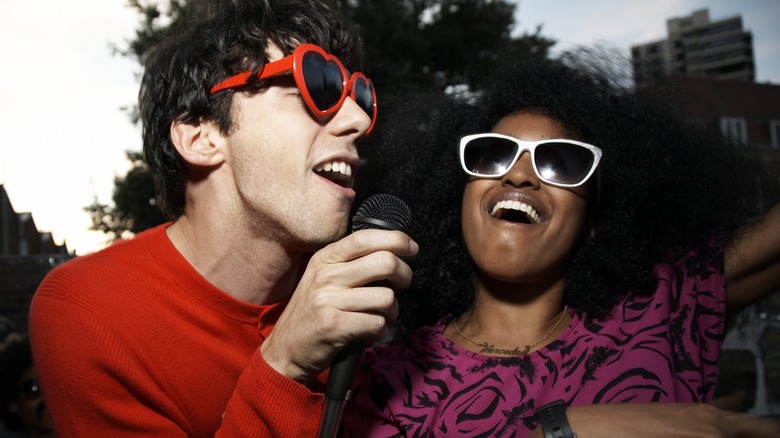How To Friend Zone Someone And Actually Stay Friends
There is plenty of stigmatized language in the dating game. "Friend zoning" is meant to describe a person playing — or waiting — in some arbitrary neutral zone instead of moving into the offensive or scoring zone, playing on problematic metaphors that equate physical intimacy to winning or losing. Michael Kimmel, the director of the Center for the Study of Men and Masculinities, explained to Mic, "If you grow up learning that sex is adversarial — he chases, she is pursued; he gets, she gives — then how do you deal with what amounts to relegation to the losers' bracket?"
The truth about the friend zone is it's a controversial and commonly sexist idea used to express a level of dissatisfaction with the nature of a relationship. Valuing romantic relationships above friendships is based in patriarchal notions that prioritize the nuclear heterosexual family rather than other rewarding forms of human connection. But, in reality, friendship isn't inherently worth less than romantic relationships.
Still, you might struggle with knowing if you should leave the friend zone with someone you care about, and the reverse can also be true when one or both partners decide that they'd do better as a platonic connection. But how can you successfully transition a relationship back to friendship once feelings have gotten involved?
Clear things up with kindness
Danu Anthony Stinson, a psychology professor and co-author of a study on friendships leading to relationships, told The Guardian about some of the harmful dynamics that are at play when it comes to friend zoning. "You get people complaining about being 'friend-zoned' ... based on this idea that relationships between men and women are somehow, by default, sexual," she explained. "But when we actually ask people, they say they have friendships with people –- of all genders –- that they could potentially theoretically be attracted to one day."
Stinson's study found that 65% of the straight couples surveyed were friends before forming a romantic relationship while 85% of queer couples expressed the same. But whether the friend zone comes before a romantic connection, after a breakup, or is the status quo you'd like to maintain, friend zoning requires direct and honest communication to result in an actual friendship.
However, that's easier said than done. Dating expert and breakup coach Natalia Juarez told Elite Daily, "People are so afraid to hurt someone's feelings that they just won't say anything at all, and that is not the way to go.These conversations are just a part of dating! And it's OK!" Avoiding a conversation means that blurry lines may stay blurry, and the person in question may think you don't enjoy their company at all, resulting in potentially irreparable damage between you.
Suggest a dynamic that feels comfortable
After being honest about your feelings, the next step is making sure you're ready to establish a clear path forward. Juarez shared a helpful script with Elite Daily for your approach to the difficult conversation involving unreciprocated romantic feelings. For a newer date or app match, she'd begin by saying, "It's been great getting to know you." Then, you can follow up with something along the lines of "I've enjoyed our conversations, and it's great that we have so much in common. However — and I'm not sure about you — I'm not necessarily feeling that we're a match."
When you've made it clear how you feel about your connection, or lack thereof, you can express your enthusiasm for a potential friendship. Juarez suggested saying, "I'd be open to continuing a friendship if you're up for that. If not, I totally understand." If you are both emotionally mature adults, this shouldn't result in any antagonizing or blaming, and the friend zoner shouldn't feel the need to apologize for how they feel.
It's also important to remember that friend zoning doesn't mean that you can't explore that relationship on a deeper level or form a close emotional bond with that person. Group hangouts might be a good first step toward growing your friendship. And taking romance off the table may be the right move for both of you to hold onto someone who shares your values or passions.


